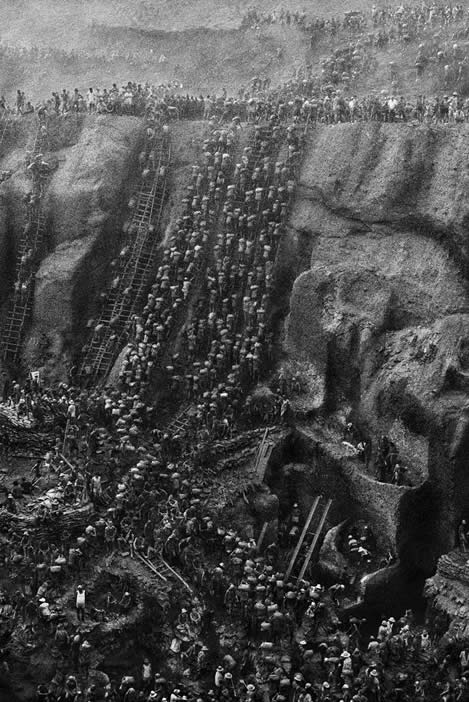
He built his hut on mountainous Chios and cultivates the earth; mildly, showing respect to diversity. He is not interested in being subsidized by the EU, neither to become rich by farming snails or by cultivating black truffles.
Secular, like Alexandros Papadiamantis (he must have taken a leaf out of his book), he looks as if he is going against western civilization.
A madman, an eccentric, a dangerous man.
~~
When I finished reading one of his posts regarding two four-lined snakes that canoodled at the edge of the field, I took a look around at my surroundings, to the place where I live.
Our only contact with “nature” is walking the dog and picking up their poop (some people won’t even do that).
There are the “getaways”, too; summer getaways, one-day getaways. We got used to the word and we don’t give any thought to what it means: to make a getaway, it means that you are a prisoner.
We don’t think of it, because in a few hours or days we have to go back to our prison.
Just take a look at the houses we are living in. They are aboveground anthills occupied by antisocial ants. Most of us have no idea whatsoever which ant lives just above or nearby.
And we think it is normal.
~~
I see the apartment block across the street. I know none of these people, even though they live just twenty meters away.
On the first floor lives a young couple. At nights they watch TV.
On the second floor lives a woman who has all the shutters closed day and night. I have seen her opening one, giving a piece of clothing a quick shake and hastening back to her photophobic trap.
On the third lives an old woman. She has some flower pots with geraniums; they might remind her of her childhood and the island.
On the fourth there is one more couple. They have a five-year-old child that rides its bike on the balcony.
In the penthouse lives an elderly couple that often takes care of their grandchild. They run after it (at least, they do their best) when the child rides its bike on the balcony. The two children (of the fourth and fifth floor) are peers but I have never seen them playing together. They just ride their bikes in parallel courses, the one above the other.
I know none of these people. I see them every day, some of them for years, but they are unknown to me.
~~
Overpopulation is, according to Konrad Lorenz the first of humanity’s eight deadly sins.
The other people, aside from family and friends, are obstacles in city life.
They are not just strangers, they are obstacles.
They are in front of us (in public services, super markets, hospitals, ATMs), stuck to us like glue in the bus and they are road hogs (and you begin by dropping curses on somebody who goes slower than you’d like).
Overcrowding in cities and the urban anonymity that comes with it “not only results indirectly in inhumane deeds caused by weariness and the progressive extinction of the human contact, but it is also the direct cause of a totally aggressive behaviour”.
~~
If you cram 100 mice in a cage for ten, they will begin killing each other, even if food suffices. In the towns are crammed many of us, too. Not accidentally.
Consider Greece. What percentage of the population lives in big cities? Almost everyone!
Half the population of a country of a total area 131.9567 km2 is jam-packed in the Attica Basin.
And we think that it is normal.
[Athens is an idyllic city in comparison with monstrous ones like Mumbai (12,883,645 residents), Mexico City (19.2 millions) and Cairo (20,000,581 residents)]
~~
Urban people are good-for-nothing. They produce only litter, services – and money. None of us grows our own food.
Moreover, in all big cities, economic inequalities blow up. There are luxurious suburbs and ghettos. In between there are those who scorn the overly poor and vainly dream of becoming like the overly rich.
The urban cities feed the monster of neoliberalism. In a city of 100,000 unemployed (I speak of the tiny Thessaloniki) is 100% certain that there is someone willing to work hard and uninsured for a pittance (or even voluntarily sometimes).
It makes sense, since these people totally rely upon these 3€ they will get (if you get 3€ per hour in Mumbai you are a rich man): if they don’t submit themselves, they will die.
During periods of crises, the poor living in the cities are affected most. During Occupation, people died in their hundreds because of hunger. Only in the cities; in the villages they were executed.
~~
This is not only due to the incapacity of finding food – aside the food available in supermarkets; it’s also the alienation, the remoteness that plays its part.
This woman that lives on the second floor of the apartment block opposite might die tomorrow or she could be dead for three days now. But I’m not going to seek her out, knock on her door, because I don’t know her.
In a village, even if the neighbor is a hell of a busybody, even if you dislike her, you still know what she is doing , what is her name, what is her son’s job – in town. If she doesn’t shake her carpets on your clean laundry in the morning as usual, it will have you wondering, you will look for her.
We should not forget the Latané and Darley experiment about diffusion of responsibility: “The more the witnesses of an untoward incident like an assault or accident, the less responsible everyone feels, because the responsibility is diffused equally into the crowd.
The worst of all is that we got used to the beast’s face (our face) and all these things seem to us natural, inevitable.
We are so used to our urban anonymity that we can hardly tolerate the strangers, the people.
Because in town everyone is a stranger.
Lorenz, who lived in Vienna, wrote that once he invited a couple from Canada to dinner. They were living in a farm, where the nearest house was 50km away.
At some point while they were immersed in conversation the door bell rang. Lorenz got up cursing, because someone interrupted them. The Canadians were shocked.
In their book, the sound of the doorbell was a gift: a man.
For the Viennese it was a burden: a man.
~~{}~~
Epilogue
I am often irritated by Makridakis’ posts. He is fancy-free, without a family and he had a basis to leave civilization behind.
The rest of us who own no land or hut, neither do we have the knowledge or some money to get started, how can we follow?
But this is where exactly the monster that we feed to pauperize us relies upon. The destitute is unable to make a fresh start, they must keep feeding the beast with their body, their time, their obedience, their despair.
That is why people like Makridakis are dangerous; because they make plain that our lifestyle, living in anthills, is not normal.
We are not ants, but we are convinced that this is the only way to survive.
~~~~~~~~~~~
CORRECTION: Ants are eusocial insects. Humans behave more like viruses.
~~~~~~~~~~~~~
The two photographs are taken by Sebastião Salgado.
The first one was taken at a train station in Mumbai.
The second one at a gold mine in Brazil.
Sanejoker’s Facebook page:
https://www.facebook.com/sanejoker/
Translated by Alexandros Mantas
https://residuosmentales.bandcamp.com/releases
Edited by Jackie Pert









